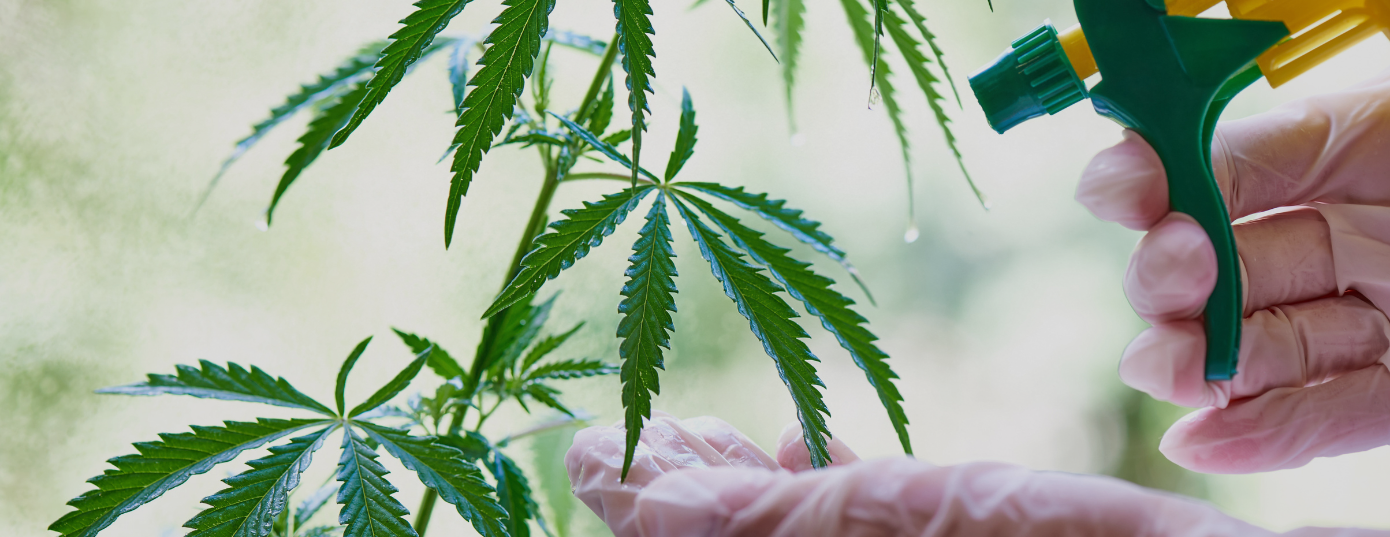Most Weed Is Not Vegan: Here’s Why
Would you be surprised if I told you that the great majority of cannabis is not vegan? How can this be if weed is basically a plant you can smoke? Well, I was deceived too as I was doing my research for this article, but once I understood the reasons why, it made a lot of sense to me.
Let’s dive into the world of veganism and cannabis, shall we?
What Is Veganism?
Wikipedia defines veganism as the practice of abstaining from using animal products, particularly in a diet; however, making the decision to go vegan entails so much more than just food.
According to Vegan Society, the vegan lifestyle can be approached in many ways, but all vegans must have something in common: a plant-based diet that avoids all animal foods, which includes meat, fish, shellfish, insects, dairy, eggs and honey.
Most vegans will also avoid animal-derived materials, which follows the famous “cruelty-free” stamp that condemns products tested on animals and places that use animals to entertain crowds, such as cockfighting, bullfighting, fishing sharks for fun, etc.
Sophie Davies from A Considered Life names the following reasons as to why she chose to become a vegan. To her, the definition goes way beyond animals and aims towards living a life with purpose, which she considers to be simple and sustainable.
- Save money.
Specialist vegan dishes tend to be more expensive than their meat based counterparts, especially in restaurants. However, if people are dedicated to change their diet and save money, the first place where they’ll need to start is in the kitchen, where they can always choose affordable and nutritious ingredients such as lentils, beans, rice, potatoes and oats instead of animal products like meat, eggs and milk – ingredients that are actually more expensive.
- Protecting your health.
So (part of) the problem with meat, fish and other animal derived products is the amount of hormones and microplastics they have in them, which leads to health issues in humans, like high blood pressure, diabetes, heart disease and even cancer. Studies have shown that eating a rich and diverse plant-based diet leads to fewer health problems thanks to the natural antioxidants and vitamins found on vegan ingredients.
- Protecting the environment.
It is no secret that the meat and dairy industry is responsible for about 60% of greenhouse emissions. Industrialized agriculture is causing water shortage throughout the world, contributes to deforestation and the end of valuable ecosystems that help rebuild and nurture our planet. People switching to a plant-based diet will help reduce their own carbon footprint, but for it to work its wonders more people need to become vegan. “Our personal choices won’t directly reverse environmental damage or stop climate change but collectively they will,” Davies writes.
- Show kindness & compassion.
So what exactly is the problem with cannabis – a plant – not following a “vegan procedure” or having a vegan stamp? The answer lies in the last two reasons previously mentioned.
Are We Sure Not All Marijuana Is Vegan?
Yes. In fact, the great majority of marijuana does not meet the vegan demands, and here’s why.
Given the fact marijuana’s consumption has risen over the last years thanks to countries all over the world passing cannabis laws, legalizing medicinal use, tolerating and decriminalizing cannabis, intense cultivating is much needed to meet public demand. And how can farmers obtain more and much better plants? They invest in added nutrients, which are fertilizers.
Way Of Leaf mentions that the most highly recommended fertilizers for cultivating cannabis use nutrients that derive from animal origins, such as fish hydrolysate, bone meal, and blood meal, which all exist as result of intensive animal farming. To understand why these “nutrients” are not cruelty-free, let me explain their origins.
Fish hydrolysate comes from fish that didn’t make the commercial cut, so it's ground up fish that gets liquified and poured into a bottle. Bone meal is basically the waste product (ground animal bones) from a slaughterhouse made into fine powder, while blood meal is dried animal blood also transformed into powder.
I mean, you’re not straight up smoking animal parts, but your cannabis was not made 100% cruelty-free unless different fertilizers are used. That is why many vegans that consume cannabis choose to grow their own weed, making sure they’re using the correct fertilizer that meets their needs and convictions.
Growing Your Weed With Vegan Fertilizer
Happy Leaf Collective points out that most veganic methods simply refer to organic growing, its cultivation process, and producing food with minimal exploitation or harm done to animals in the process. So for them, the first two steps to stop using non-vegan fertilizers is to select the appropriate nutrients and find a healthy balance of soil microbes to grow the cannabis plant.
An alternative is to look for vegan fertilizers on the market and try them out! Nonetheless, if you’re willing to make your own product, Way of Leaf proposes three natural fertilizers to grow veganic cannabis:
- Compost:
Is method that adds the organic food scraps in a pile and lets them naturally decompose. The outcome is used as solid or liquid fertilizer.
- Alfalfa Meal:
Comes from the legume alfalfa, and is an excellent substitute for blood meal.
- Kelp Extract:
Is a plant-based fertilizer that is usually available in liquid presentation. While shopping for this, make sure it doesn’t include fish extract so it’s 100% vegan!
Ultimately, I know most people can’t just happily grow cannabis in their homes, especially if it’s not legal in the place they live. If you’re vegan or just don’t support animal cruelty and would like to avoid non-vegan fertilizers in your weed, then the best thing you could do is look for other options.
More Options For Vegans
It’s no surprise that the number of vegan products is growing, but if we’re being brutally honest, the cannabis industry has a lot of catching up to do. In the meantime, here are a few options:
- Buy vegan-friendly products as much as possible.
If you can’t do it with your weed, then make sure everything else you’re buying is genuinely vegan.
- If you have the resources, grow your weed at home.
Planting cannabis and treating it with vegan-friendly fertilizer will work its wonders!
- Look for vegan strains in your local dispensary.
If you have access to a legal dispensary, question them about the vegan cannabis they manage and the options they have for vegans.
- Write to dispensaries and cannabis farmers about vegan weed.
As more people around the world adopt the vegan lifestyle, I’m sure the world of cannabis will also start to incorporate the vegan philosophy in the industry, even if it’s little by little. If you're vegan, I’d love to hear your thoughts about this whole thing! Do you consume vegan weed? Where do you get it? How does this affect your own personal convictions? Let me know!
Author: Mary Jane
Davies, S. Reasons To Go Vegan. A Considered Life. Retrieved from https://www.aconsideredlife.co.uk/2019/08/reasons-to-go-vegan.html
Happy Leaf Collective. What is Vegan Cannabis? The All-You-Need-to-Know [Complete guide] (2020). Retrieved from https://happyleafcollective.com/blog/what-is-vegan-weed-complete-guide/
Pedler, T. (2020). Vegan Weed | The All-You-Need-to-Know Guide. Way Of Leaf. Retrieved from https://wayofleaf.com/blog/vegan-weed
The Vegan Society. Definition of veganism. Retrieved from https://www.vegansociety.com/go-vegan/definition-veganism
White, K. Commonly Asked Questions. Olive Wood Vegan. Retrieved from https://www.olivewoodvegan.com/commonly-asked-questions


1 comment
I am a vegan/vegetarian , I try to ? but I lived through the whole COVID season with and a few years before . I am a medical cannabis patient . I was also wish you can help on researches about wars, civil wars that were fought over vegetables or grains (cashews etc)